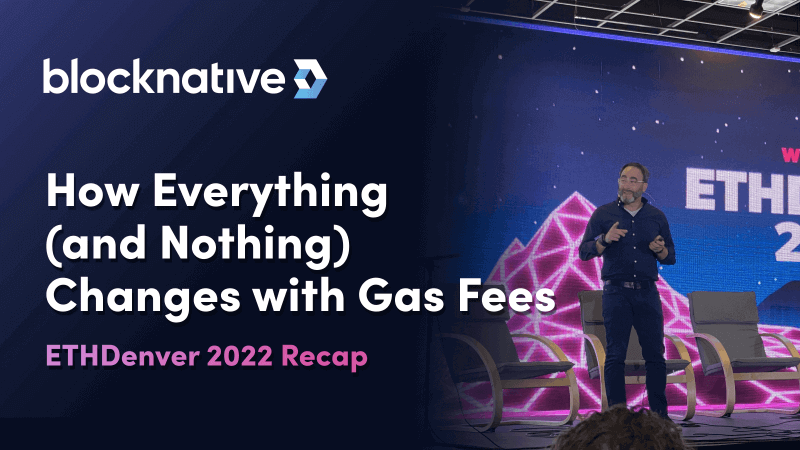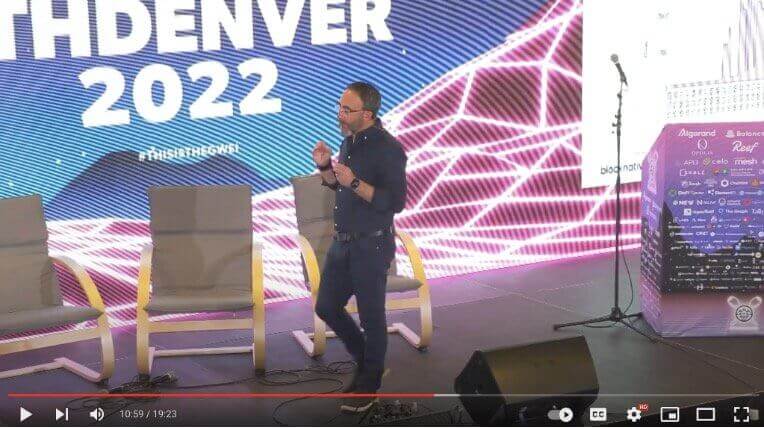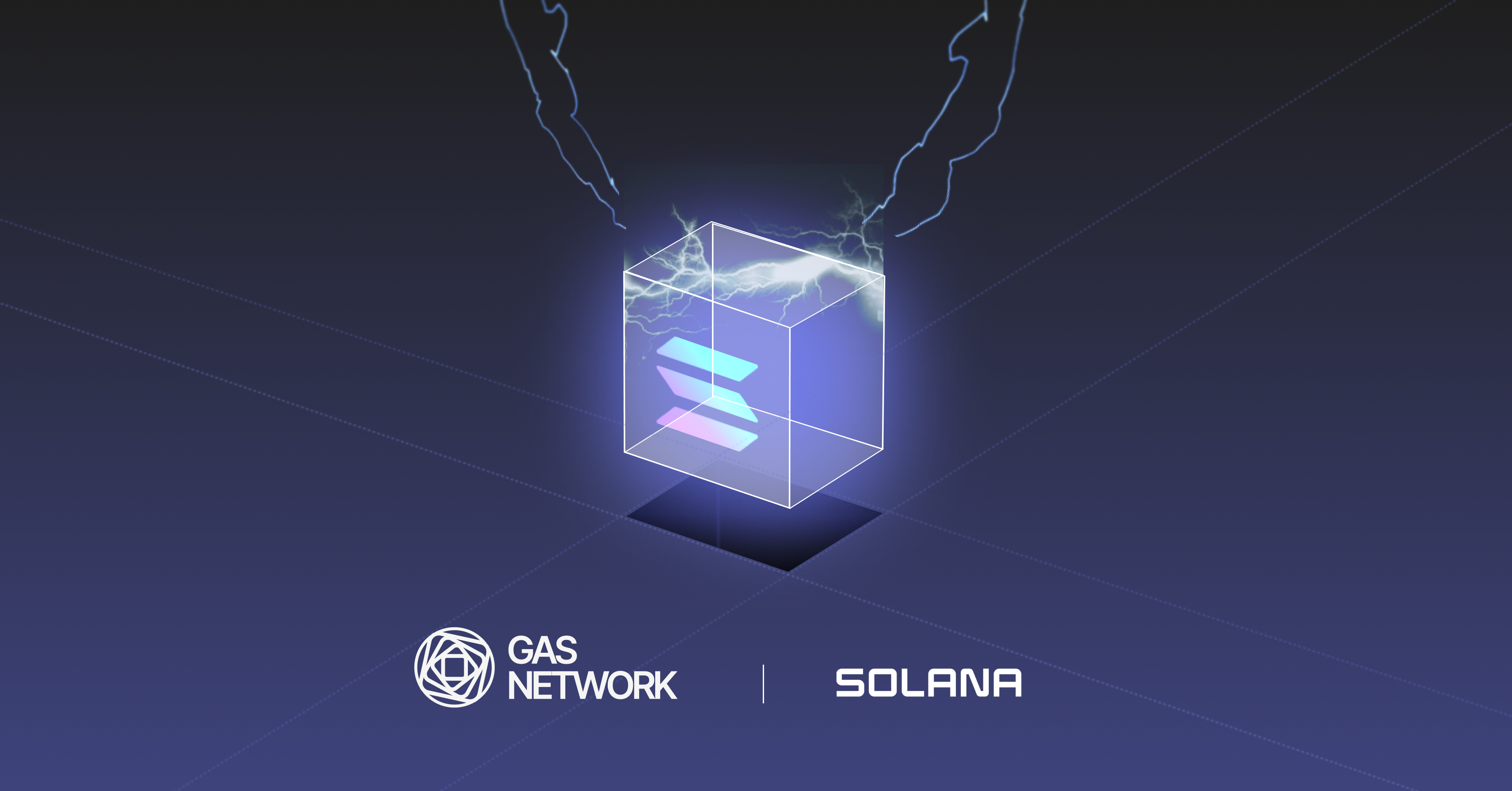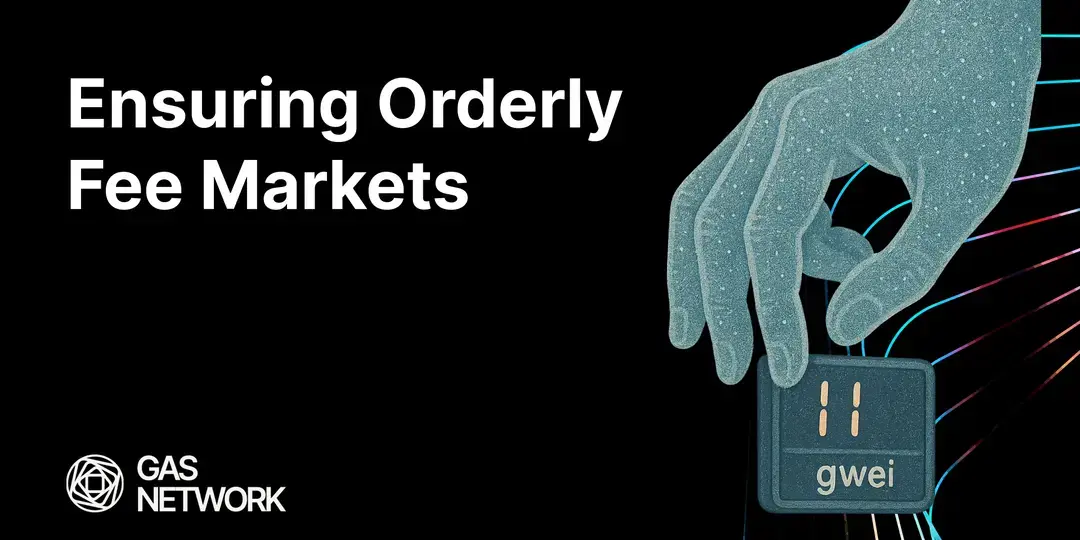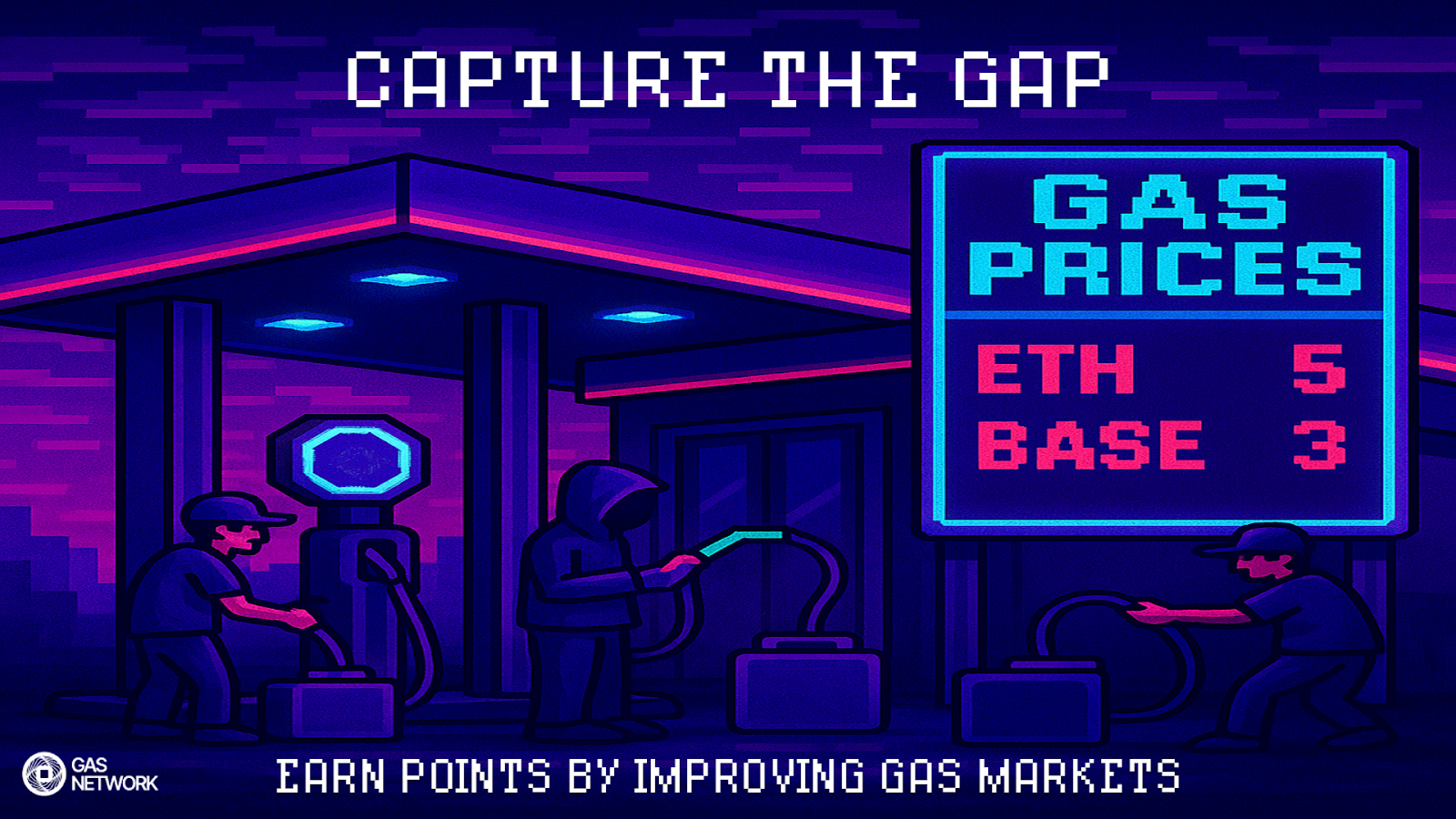This year's ETHDenver was by far the largest ETH event to date with over 12,000 in-person attendees. While primarily designed as a hackathon, the main event weekend, February 17th-20th, featured talks and workshops by top blockchain influencers and experts.
ETHDenver 2022 marked Blocknative’s fourth year speaking at the conference. With the increased focus on ETH gas fees and spikes this past year amongst Ethereum developers and traders, alike, we chose to use our expertise in the field to help demystify gas for event participants.
Our presentation, “How Everything (and Nothing) Changes with Gas Fees” discussed all things gas?—from the original gas fee marketplace under Public Gas Auctions (PGAs) to what changed under EIP-1559 and what is expected moving forward, post-Merge.
Below is an overview of this year's presentation by Matt Cutler, Blocknative CEO and co-founder. Alternatively, you can catch the full recording on ETHDenver’s Youtube channel.
How Gas Has Historically Been Priced on Ethereum
Gas fees in the past used a simple model: users set their own gas price and miners prioritized transactions with the highest fees. This was known as a First Price Auction (FPA). Under this fee structure, block sizes were fixed and miners received all the fees as part of their mining rewards.
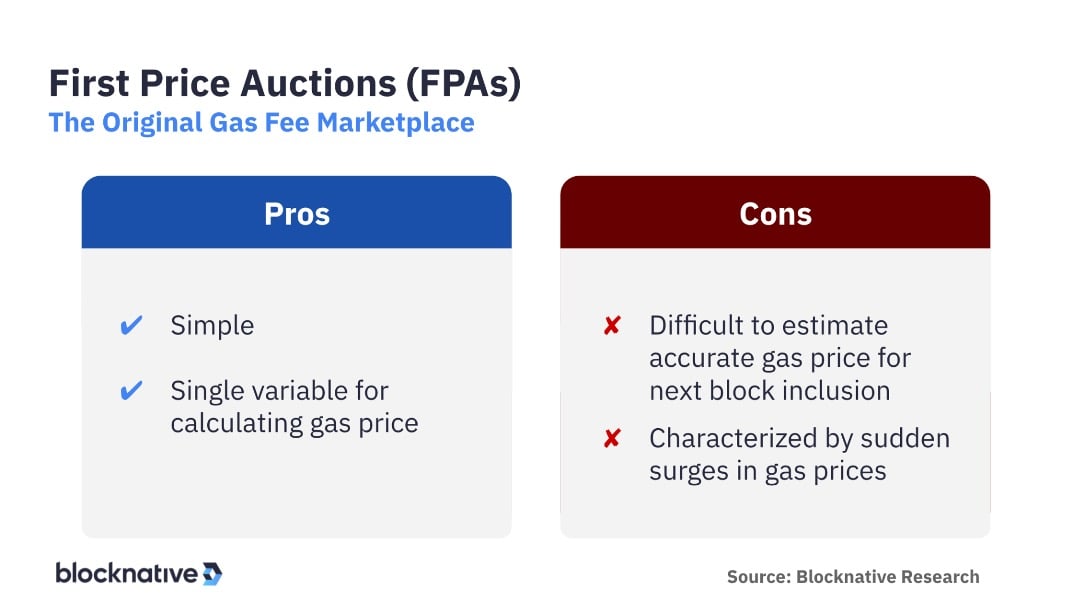
This model was easy to understand because gas price only relied on one variable, however, it created an issue when trading bots and other algorithmic systems would ‘go to war’ with each other, fighting for inclusion in the next block.
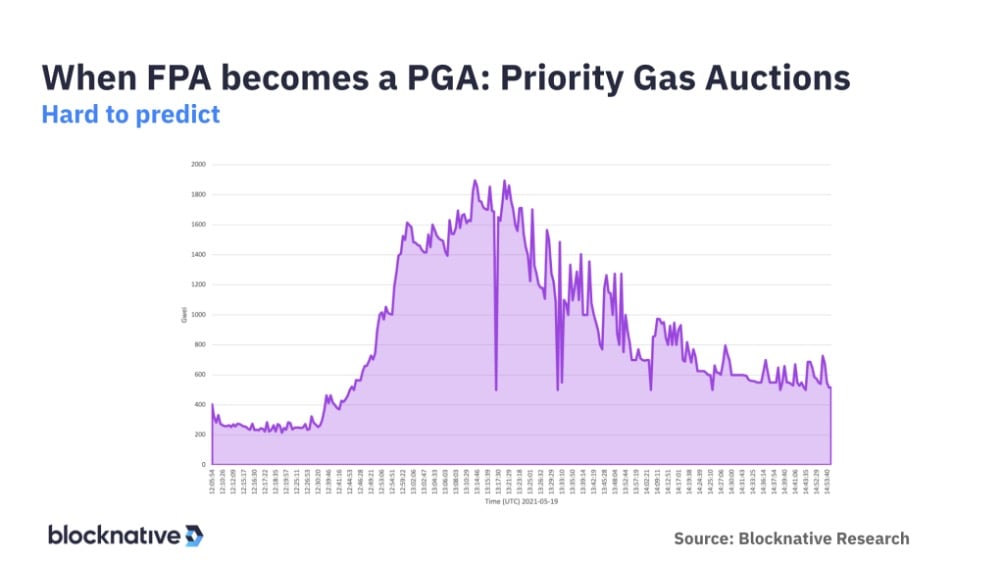
These gas wars led to PGAs or 'Priority Gas Auctions' as bots fought to have their transaction prioritized over others by continuously increasing the gas price for their transactions. This would often escalate and cause gas prices to increase quickly and dramatically, congesting the entire network as seen in the chart above. As a result, the average user often found it difficult to figure out what configurations needed to be changed in order to get into the next block and just raised their overall gas fees tremendously, oftentimes severely overpaying in gas.
The Present: EIP-1559
EIP-1559 was launched as part of the London hard fork in August of 2021 and introduced a whole series of changes that vastly impacted how the network works. This includes the implementation of:
- Dynamic block sizes
- A new gas fee structure using Base Fee, Priority Fee (miner tip), and Max Fee
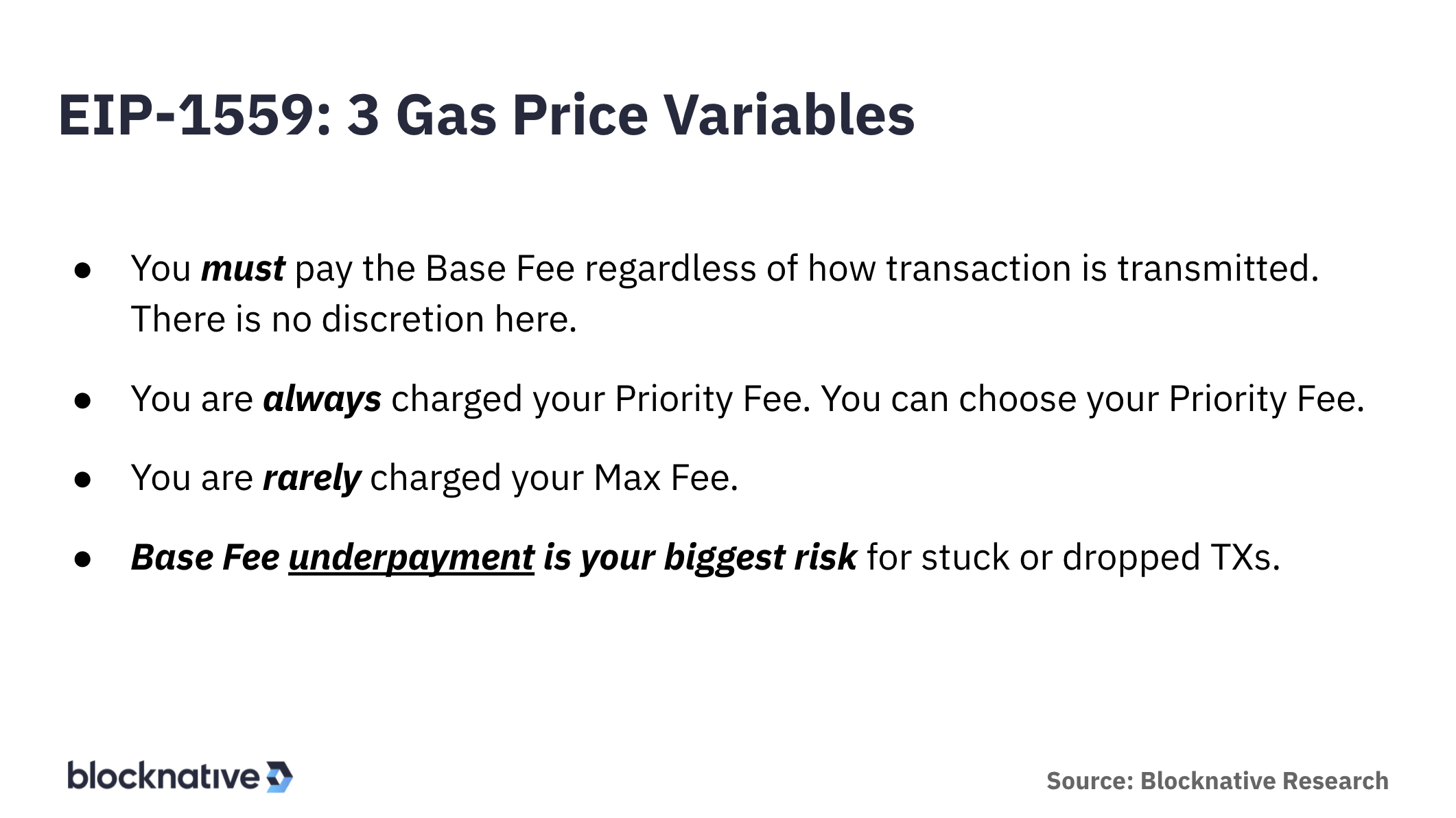
1. Base Fee
The Base Fee is the minimum gas needed for inclusion in the next block and is set by the Ethereum network. TheBase Fee must be paid and is a constant across all transactions. Depending on how full that new block is, the Base Fee is automatically increased or decreased to target 50% full blocks. This dynamic mechanism is meant to help smooth transaction fees and prevent sudden spikes.
2. Priority Fee
The Priority Fee is an 'optional' additional fee set by the user and paid directly to miners in order to incentivize them to include your transaction in a block. It is sometimes referred to as the miner tip. Users will always be charged their Priority Fee.
3. Max Fee
The Max Fee is the absolute maximum amount you are willing to pay per unit of gas to get your transaction confirmed. You are rarely charged your Max Fee.
When setting a Max Fee, Blocknative uses the following equation to calculate the optimal inputs:
Max fee = (2 * Base Fee) + Priority Fee
Doubling the Base Fee when calculating the Max Fee ensures that your transaction will remain marketable for six consecutive 100% full blocks because, at a maximum rate of increase, the Base Fee will double in six blocks.
Doing so may make the transaction look super expensive, but it's important to remember that the full Max Fee is rarely charged.
Has EIP-1559 created a more stable gas fee marketplace?
Data shows that times of high network congestion still result in sudden gas spikes similar to the Priority Gas Auctions seen under the original FPA model.
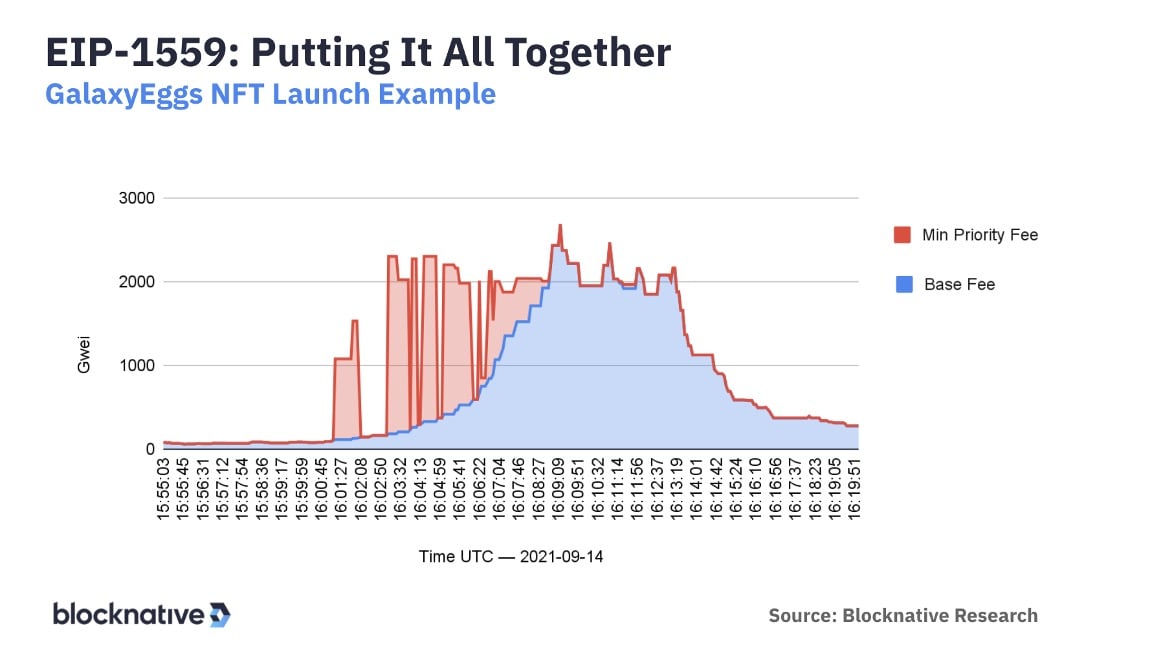
For example, during the GalaxyEggs NFT launch in September 2021, there was a huge surge in the minimum priority fee near the beginning of the launch while Base Fees were still low. Base Fees eventually increased to catch up with the exorbitant Priority Fees to match what looks like the same gas spike and flat tops seen in Priority Gas Auctions.
Even under EIP-1559, Priority Gas Auctions still exist; they just have more variables at play.
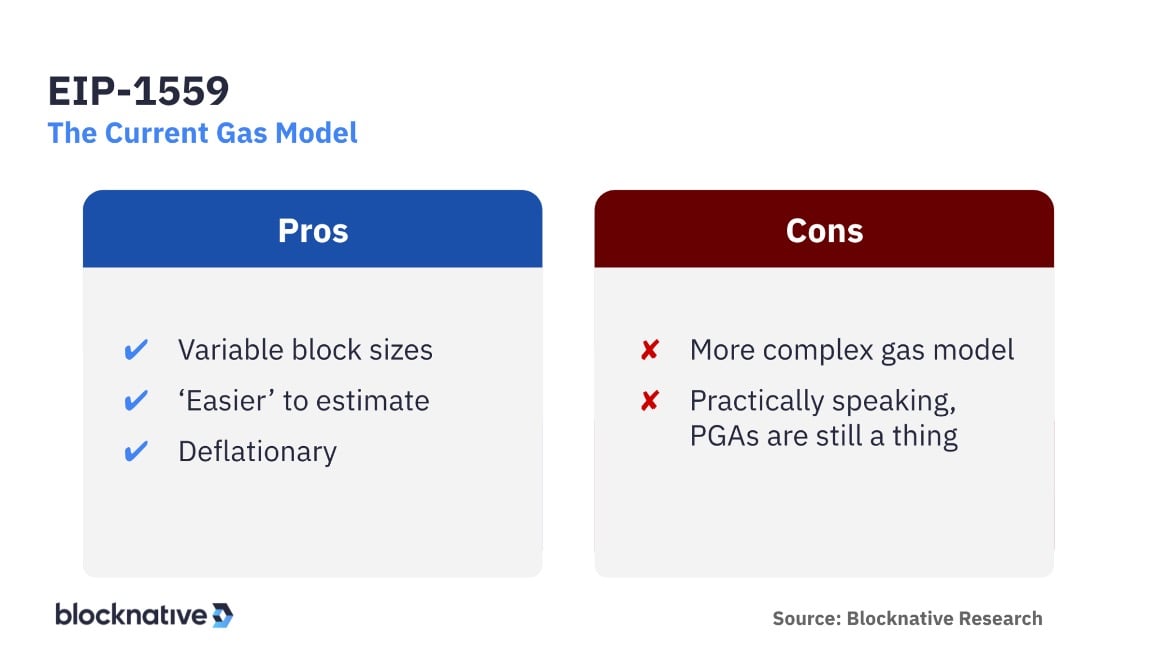
Benefits of EIP-1559: Real-World Data Since Implementation
Data has shown that EIP-1559 transactions come with many benefits, however. adoption takes time. Blocknative research has found that after more than 6 months only about 75% of ETH transactions are currently Type 2 transactions—meaning they utilize EIP-1559.
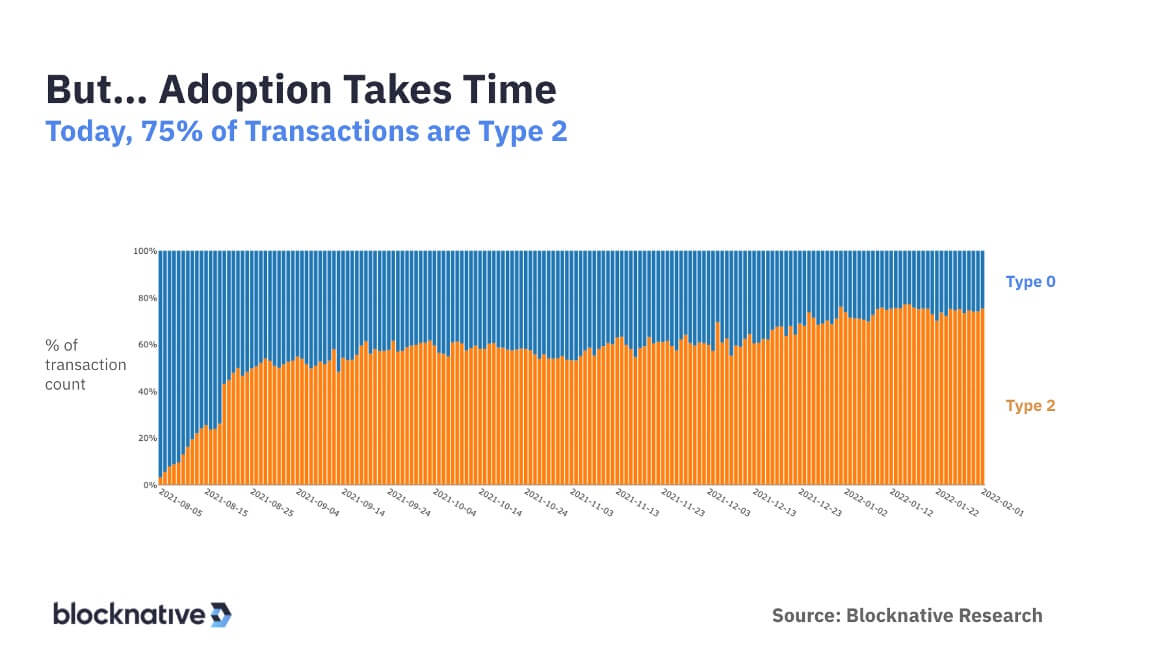
Blocknative has also found that Type 2 transactions tend to cost less, resulting in an average savings of about 14%. It's important for developers to incorporate EIP-1559 into their projects to ensure users don't overpay unnecessarily.
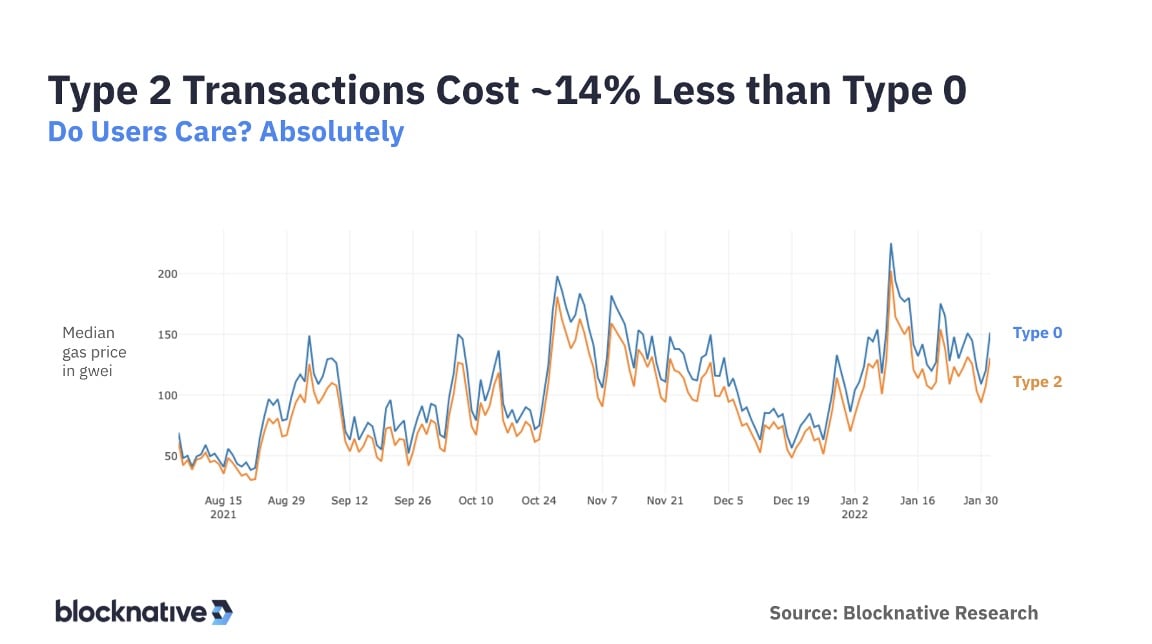
Another benefit is Type 2 transactions tend to get on-chain slightly faster than Type 0 transactions. While the delta between the two is only, on average, about 0.6%, milliseconds matter in the mempool.
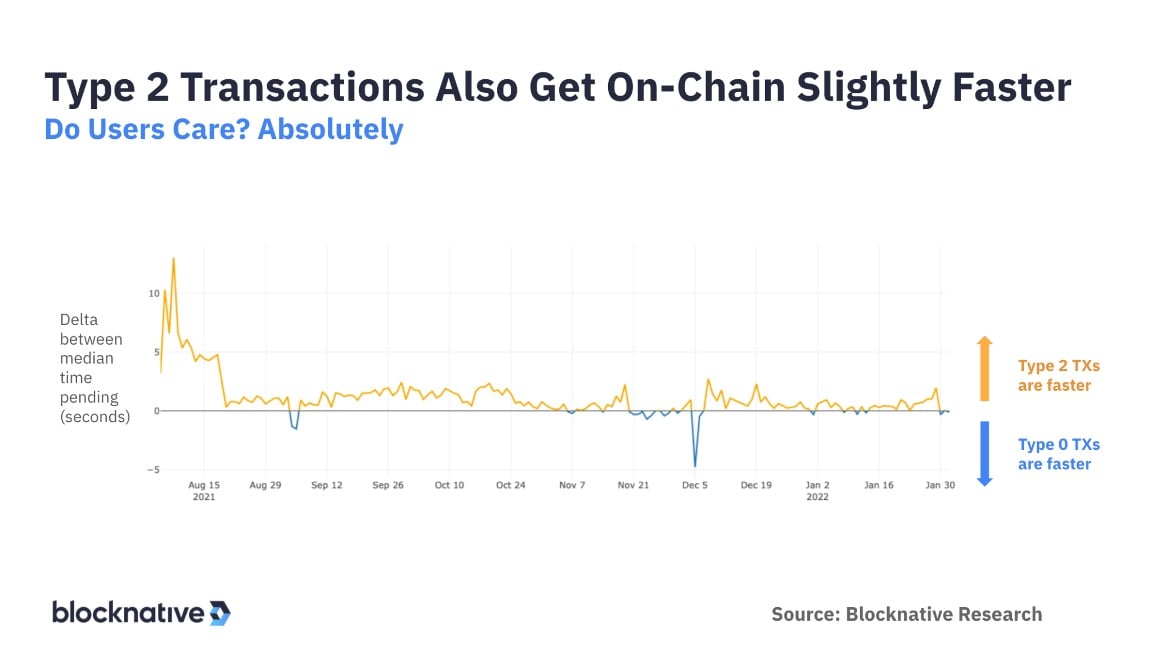
What Changes Post-Merge?
The Merge is expected to occur mid-year 2022, resulting in the Ethereum mainnet finally merging with the Beacon Chain and transforming the network from proof-of-work (PoW) to proof-of-stake (PoS). While this change will not affect the gas pricing model—Ethereum will continue to use EIP-1559— there are a few key changes that may impact the future of gas.
Fixed Block Times
One of the most important changes to come out of the Merge will be fixed block times.
The current PoW model uses variable block times which means blocks can be confirmed at any moment, so every millisecond is equally ‘valuable' under this system. Miners and MEV searchers have no way of predicting exactly when the next block is going to be confirmed.
Under PoS, blocks will be confirmed every 12 seconds. This means every millisecond is no longer equal to every other millisecond as those closer to the block confirmation will hold more value for specific trading strategies so competitors have less time to respond. It is likely that this will result in a surge effect where the second or two before the block gets confirmed sees a spike in transactions.
There will be tighter time horizons for various automated systems to compete with each other, creating competition for lower latency infrastructure to detect and respond. This should have an impact on gas fees, but no one knows yet.
A vast amount of capital is being allocated toward researching and discovering how fixed block times will impact gas fees. We at Blocknative believe that we will see a new phenomenon, post-merge, that will affect the entire network and the nature of the gas marketplace.
Sharding is on Part of the Scaling Strategy
Sharding is planned to launch in 2023 and will increase block space for the Ethereum network. The main impact we may see is an overall increase in smart contract transaction volume on the Ethereum network. We already see this happening on some L2s and sidechains, such as Polygon, as users flock to these networks for the reduced fees they bring.
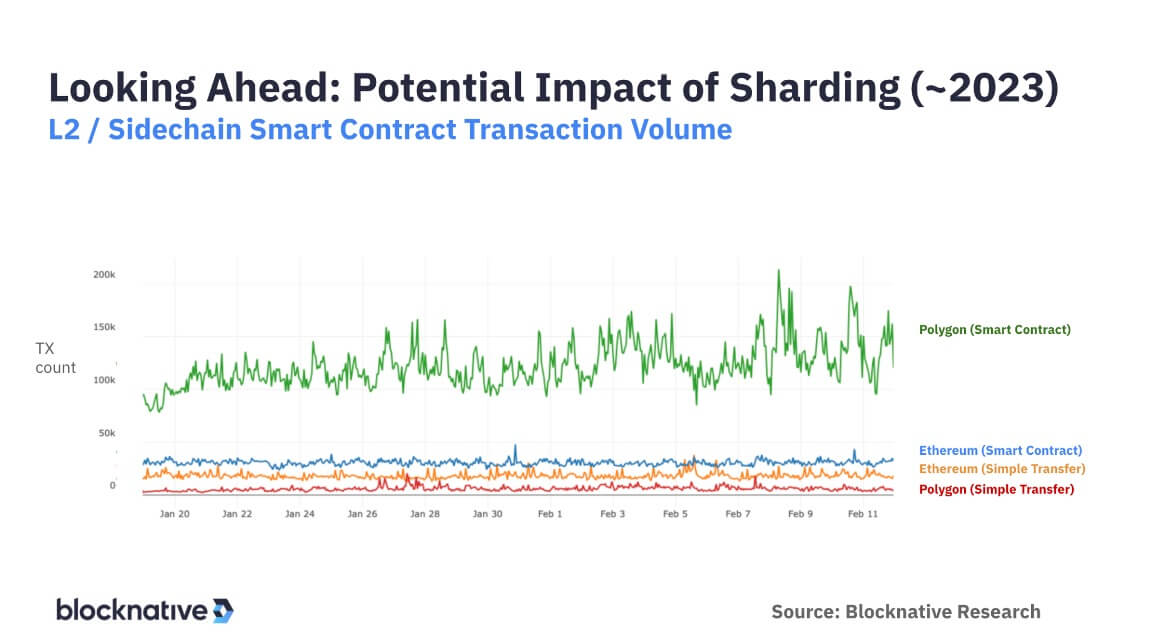
However, a common misconception is that if Ethereum adds block space, gas prices will go down.
While this may be the case initially, it is not the case in the long run.
As we add more block space, there's going to be a corresponding increase in demand for that block space. This can already be seen in some L2 solutions. Ethereum, in its full form, will not solve the gas fee problem, and we must keep this in mind moving forward.
Blocknative is Here to Democratize Access to the Best Gas Fee Estimates
Gas impacts every Ethereum participant, and estimating a competitive gas price alongside market volatility is a complex task. Blocknative's ETH gas API is available to all Ethereum developers and traders as an API, via our ETH gas fee estimator, or in Mempool Explorer.
Gas Platform inspects every pending Ethereum transaction to help you or your users accurately estimate the fees necessary to be included in the next block. And our browser extension ensures you're always alerted when gas prices go above or below your specified thresholds.
Make sure to join our Discord community if you have any questions and keep up with us on Twitter or visit our YouTube channel for helpful tips and tricks on how to utilize our platform.
Gas Extension
Blocknative's proven & powerful Gas API is available in a browser extension to help you quickly and accurately price transactions on 20+ chains.
Download the Extension
